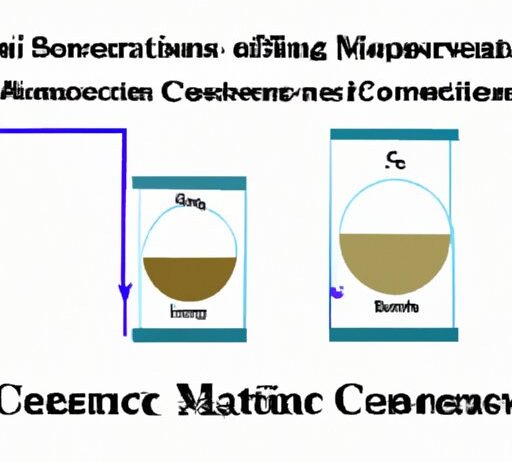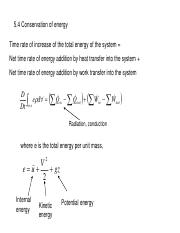Energy conservation is a fundamental principle of physics that asserts the total energy in an isolated system remains constant over time, primarily attributed to the law of conservation of energy. However, scenarios arise where energy appears not to be conserved, leading to intriguing exceptions and prompting questions about the nature of these anomalies. What does it mean when energy is not conserved? Are these instances mere aberrations, or do they reveal deeper insights into the workings of our universe?
To explore this topic, we must first understand the foundation of energy conservation. In a closed system, energy can change forms—think of the kinetic energy of a moving car transforming into thermal energy through friction. Yet, the overall energy within the system remains unaltered. This foundational principle applies broadly across classical mechanics, thermodynamics, and electromagnetism. But, are there exceptions where energy conservation does not hold?
One area where energy conservation fails, at least superficially, is in the realm of quantum mechanics. Here, phenomena such as virtual particles challenge our classical intuitions. During particle interactions, it appears that energy can spontaneously emerge from the vacuum. These virtual particles, which exist momentarily, seem to violate the energy conservation law. However, this transgression is fleeting and reconciled by the Heisenberg uncertainty principle. The energy does not vanish but rather oscillates at such a brief timescale that it remains undetected by macroscopic observations.
Additionally, let’s consider the phenomenon of black holes. Once matter crosses the event horizon, the energy contained within it seemingly escapes the confines of our observable universe. According to classical physics, the energy should persist; however, the extreme warping of spacetime around a black hole complicates the conservation narrative. In what sense is energy conserved if it transcends our universe’s observable limits? Here, the interplay between energy, matter, and gravitational incomprehensibility raises profound questions about conservation principles.
Exploring broader contexts, certain thermodynamic processes also elude strict adherence to energy conservation. Entropy, a measure of disorder, invariably increases in spontaneous processes as described by the second law of thermodynamics. Although the total energy remains constant, the quality of that energy diminishes—energy is irretrievably lost in the form of heat. In this context, while energy is not lost per se, its capacity to do work diminishes, which can symbolically reflect a non-conservation in practical terms.
Moreover, consider the concept of energy harvesting. Energy conversion technologies aim to capture ‘unused’ or wasted energy from various sources, such as heat emitted by engines or solar energy. In an ideal scenario with perfect conversion, one might argue energy can be “conserved” by reclaiming these otherwise lost outputs. However, real-world applications are often laden with inefficiencies, thus allowing the potential energy to dissipate. While the total energy remains constant, our failure to harness it effectively translates into energy being “lost” in a functional sense.
The question then leads to potential challenges for those committed to sustainable energy practices. With technological advancements illuminating paths to capture waste energy, what inspires societies to prioritize energy conservation? Legislative frameworks and societal norms often fall short in fostering an ecological mindset. Can we engage our communities effectively to mitigate energy wastage, despite the inherent complexities revealed through scientific investigation?
Going further, instances of energy generation through artificial processes present their own conundrums. For example, nuclear fusion—the process that powers stars—has long been pursued as the holy grail of clean energy. Yet, despite its massive potential, the intricacies of achieving a sustainable reaction consistently continue to thwart scientific endeavors. At times, it seems the universe gatekeeps the secrets of energy transformation, taunting humanity in its quest for unending energy supplies.
This leads to a contemplation of alternative energy narratives. Renewable resources, while largely touted for their utility in preserving ecological balance, still grapple with inconsistencies. The intermittence of solar and wind energy poses a logistic challenge. When sunlight is fleeting, or winds are stagnant, energy production dips—suggesting a non-conservation in output. How do we engineer a future where energy conservation is not just a theoretical construct, but an operational reality?
In summary, the question of what it means when energy is not conserved invites contemplation on multifaceted levels. While exceptions abound within quantum mechanics, black holes, thermodynamics, and practical energy extraction methods, the essence of energy conservation remains paradoxical. These phenomena do not invalidate conservation principles, but rather expand our understanding of energy dynamics. They challenge us to refine our approaches, enhance renewable technologies, and foster sustainable practices.
Ultimately, it is our responsibility to grapple with these questions—to reconcile the complexities and advocate for a world where the conservation of energy is prioritized. After all, as custodians of our planet, it is imperative we engage with these concepts, not merely to understand them, but to enact change in service of our collective future.






